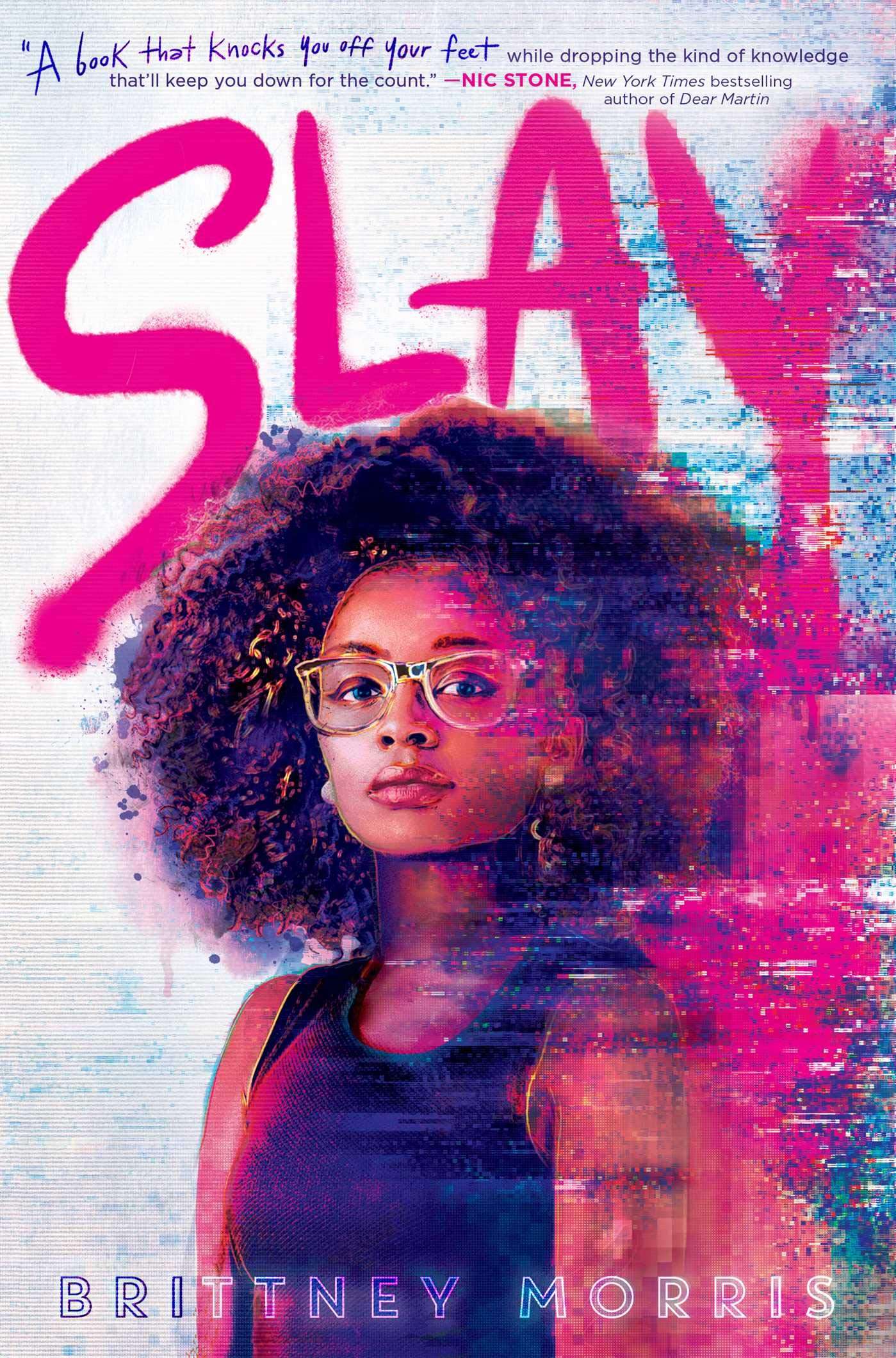Slay, by Brittany Morris
On one hand, I have a really hard time recommending this book for very valid reasons. On the other hand, I can’t not recommend it, also for very valid reasons.

Let’s get the almost insurmountable problem out of the way: at the center of the book is an online game called Slay. It is a dynamic, environmentally fluid, multi-player VR dueling card game built for Black gamers so they can revel in Black culture and community without having to endure the racism that is not only voiced by other players but often built into games themselves (think of the visual ethnicities of online games such as Final Fantasy and World of Warcraft). It is glorious. A game like this needs to exist.
But we are being asked to accept that such an immense, dynamic project (hundreds of thousands of subscribers) could be developed and administrated solely by two young individuals, the main one being a high school student who is nonetheless able to hide her involvement in Slay from ALL of her friends (including her boyfriend) and family while still maintaining a high GPA. (Her partner in the project is a struggling college student on the other side of the world.)
No. I mean, just… no. If the story was trying to be facetious, maybe. But it’s not – thank heavens.
Still, if you set this major, major caveat aside, this book has an incredibly important theme that is well served by the gaming environment – the pressures and prejudices that are part and parcel of the Black experience in America today, some of which are overt and some, no less disheartening, due to a lack of sensitivity and perspective.
Kiera, who is the central character of the book and the creator/lead developer of Slay, is only one of a handful of Black students at Jefferson Academy. She is popular (although not quite as socially engaged as her vivacious younger sister), is in a serious relationship with her Black activist boyfriend, and worried about what college she’s going to get into next year. But she also has to constantly deal with being Black in a mostly white world. For instance, at the start of the book her best friend – who is white – asks Kiera, “Am I allowed to get dreadlocks?” Beyond the should-she or shouldn’t-she debate is Kiera’s utter frustration at being asked to be the spokesperson for all Black people. Again.
This insight into a Black experience is fascinating and feels authentic. The references are Black (embarrassingly enough, I had to run to the internet for clarification on things as simple as “what’s a twist-out”?), the casual language is Black (along with a well built-in examination of the legitimacy of Black speech), and Black history is acknowledged (sans exposition, which is as it should be). This in and of itself is important in Young Adult literature – representation matters.
Fold into that a Black online game environment meant specifically to welcome and uplift the Black community, and there is a genuine sense of pride and celebration in the Black experience, one that is not attached to a lesson or message (which is in and of itself a wonderful lesson and message). But when a young “Slayer” in Kansas City is murdered over a dispute regarding in-game currency, the game is thrust into the spotlight. Kiera not only has to deal with her personal sense of responsibility, but also watch as this glorious creation of hers is decried as violent, racist (since it is openly meant only for Black gamers) and an online lair for thugs and criminals by “authorities” who never played the game and who only know gaming by its worst possible components.
This is a unique way to explore the slings and arrows of racism through intent rather than catalog, which allows Brittany Morris, through Kiera, to confront questions and conflicts that aren’t often explored in most of the books you find on library shelves. Yes, sometimes the narrative gets reductive, but that’s part of the point. (In other words, white people, it’s not about us.)
Loving gaming as I do, it was hard to me to read this book and not keep muttering, “but… but… but…” throughout. And as a former online gaming site community manager, it was also hard for me to stop with the “if only…” scenarios that would have lessened some of Kiera’s angst. But that would be, well, lacking in sensitivity and perspective. Setting that aside, I think I learned a lot from reading Slay.
I hope I did, anyway.
—Sharon Browning

